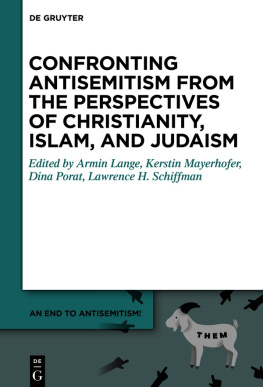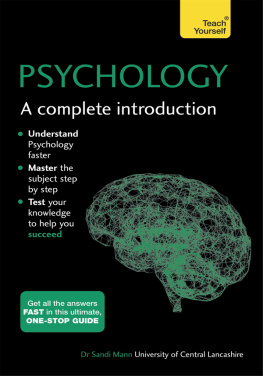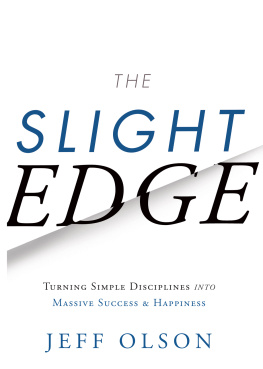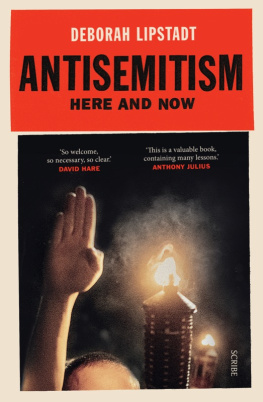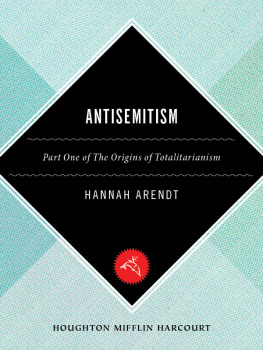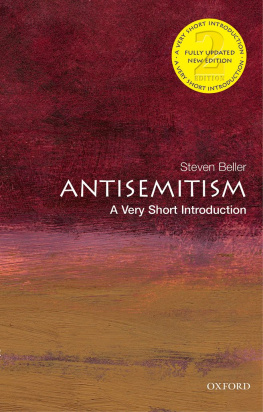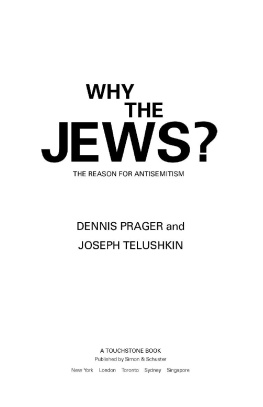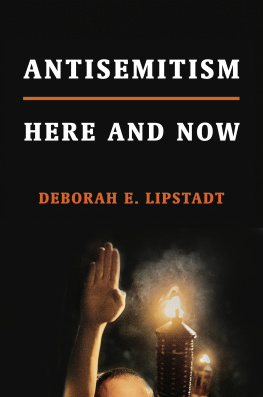John Mann - Antisemitism: The Oldest Hatred
Here you can read online John Mann - Antisemitism: The Oldest Hatred full text of the book (entire story) in english for free. Download pdf and epub, get meaning, cover and reviews about this ebook. year: 2015, publisher: Bloomsbury Continuum, genre: Religion. Description of the work, (preface) as well as reviews are available. Best literature library LitArk.com created for fans of good reading and offers a wide selection of genres:
Romance novel
Science fiction
Adventure
Detective
Science
History
Home and family
Prose
Art
Politics
Computer
Non-fiction
Religion
Business
Children
Humor
Choose a favorite category and find really read worthwhile books. Enjoy immersion in the world of imagination, feel the emotions of the characters or learn something new for yourself, make an fascinating discovery.

Antisemitism: The Oldest Hatred: summary, description and annotation
We offer to read an annotation, description, summary or preface (depends on what the author of the book "Antisemitism: The Oldest Hatred" wrote himself). If you haven't found the necessary information about the book — write in the comments, we will try to find it.
Antisemitism: The Oldest Hatred — read online for free the complete book (whole text) full work
Below is the text of the book, divided by pages. System saving the place of the last page read, allows you to conveniently read the book "Antisemitism: The Oldest Hatred" online for free, without having to search again every time where you left off. Put a bookmark, and you can go to the page where you finished reading at any time.
Font size:
Interval:
Bookmark:
TABLE OF CONTENTS
In drawing together the works of so many significant characters, it was considered useful and important to provide accompanying historical and contextual information. In addition to the speeches contained herein, a number of quotations were included in order to demonstrate the breadth of voices that have spoken out against antisemitism and racism. These quotations are, however, not connected to the speeches which precede or follow them. In addition, it should be noted that some of the speeches herein have been subjected to minor editing to remove some irrelevant historic references.
A number of people contributed to the research and publication of this book. I would primarily like to thank my daughter, Heather Mann, who was the researcher and played a key role throughout the drafting process. Thanks are also due to Danny Stone and Amy Wagner, who continue to be a great asset in the fight against antisemitism and racism, and to all my parliamentary team who work so hard to support my public life. I would also like to extend my gratitude to Stephen Rubin for his continuing interest and support and to Trevor Pears and the Pears Foundation, who made the publication of this book possible and who, through their work, continue to make a positive difference to our country and our world.
As Chair of the All-Party Parliamentary Group Against Antisemitism since 2005, I have sought to combat anti-Jewish prejudice according to three underlying principles. First, that non-Jews should lead the fight against antisemitism, because the struggle against prejudice is not just the responsibility of its victims. Second, that any success we achieve in combating antisemitism should be used to fight all forms of racism and discrimination. Third, that parliament must set the national standard in these matters and do so across party political lines.
More broadly, we have sought to reshape the debate on antisemitism and to examine afresh some of red lines that have been eroded. I commissioned the All-Party Parliamentary Inquiries into Antisemitism which reported in 2006 and 2015 respectively. These processes provided unprecedented opportunities to evaluate the political landscape and to recommend improvements that would be of tangible benefit. The impact of the subsequent reports has been seen as considerable.
Working together with key stakeholder groups we have: inspired the establishment of a Whitehall Government Working Group on Antisemitism; secured improved recording and prosecuting of hate crimes; state funding for the security of Jewish schools; a school linking programme; collaborative British and Israeli academic exchange projects; the appointment of a UK Government Envoy for Post-Holocaust issues; and we have taken a lead in re-energizing international parliamentary efforts to combat antisemitism devising global protocols for tackling online hate and inspiring similar inquiries in a number of other national parliaments. We also undertook our own secondary inquiry, which focused on the behaviour of politicians and political parties during elections.
The impact of our work has benefited not just the Jewish community but other victims of hate crime. We adhered to those principles, which have guided me, but there is a fourth key tenet that I perhaps overlooked, as for many of us it is a natural reaction to intolerance: speaking out.
I have been approached numerous times by Jewish young people and others, registering their concern that there are so few people willing to speak out and support them. Thankfully, our group is not alone in our anti-racist endeavours. There are household names, historical powerhouses and legendary leaders who have seen anti-Jewish hatred in their midst and addressed it. Their words have not been given due recognition. In bringing their works together for the first time, I hope more leaders will be inspired to speak out.
The importance of shining a light on antisemitism cannot be overstated. Would France, Hungary, Sweden and other European countries find themselves in the midst of a Jewish exodus from their countries if politicians were doing more to combat prejudice? The first section of the book aptly collates speeches for survival, given it is the continued existence of a people which is at stake.
Antisemitism, in its most developed form, does not just cause harm to Jews but to other minority communities, as Pastor Niemller so eloquently explained. Jews will be first and the rest will follow. Uniquely as a form of racism, antisemitism, rather than casting its victims as lowly and inhuman, more often defines them as all-powerful. If McCarthyism has taught us anything, it is that irrational accusations of subversion and disloyalty know no bounds. Consequently, however, speaking out and acting against antisemitism benefits not just those suffering from anti-Jewish prejudice but rather all victims of hate crime. This idea is explored further in the second section of the book, which focuses on intersectionality.
Modern antisemitism has become all too frequent and is not as simple to deconstruct as classical antisemitism, given its common staging ground of the Middle East conflict. With this complexity has come a reluctance to recognize anti-Jewish prejudice for what it is, and so the third section of the book focuses on the links between anti-Zionism and antisemitism. Our group has worked to explain what the acceptable boundaries of discourse are, and we have asked parliamentarians to take the lead when problems occur in their own backyard. We ask them to speak out, rather than stay quiet.
Too often, civil leaders have taken the easy path: they have stayed silent. In the silence, antisemitism spreads.
In speaking out, combating silence, filling the void, the people in this book have inspired freedom: liberating minds from ignorance, prejudice, malice and lies. That is the raison dtre of our work and our resolve has not, nor will it ever, waver.
John Mann, Member of Parliament, United Kingdom
PART ONE
The history of Jewish persecution is as old as the written word, though the term antisemitism was only conceived in the late nineteenth century as it reached the beginning of its most horrifying chapter. Throughout Christian history the hatred and prejudice against the Jewish people has often been blamed on the betrayal and crucifixion of Christ, but ethnic Jewish oppression began long before. The Torah chronicles ancient oppression, but non-biblical sources trace the earliest historically recorded instances back to third-century BC Alexandria in the writings of Manetho, an Egyptian priest and historian who mixed ethnic and religious differences in his hate-filled prejudice. The value and position of the holy land has led to many occupations and inevitable cultural and religious clashes between the Jewish people and their temporary overlords, whether polytheistic Egyptians, Greeks or Romans or the subsequent Christians and Islamists. The first focusing by Christians on the sin of deicide didnt occur till 167 AD, and as the centuries passed and Christianity became the dominant religion and supreme force, the hatred and prejudice spread throughout the medieval world. By the time of the Crusades and the Black Death the Jewish people had become a common enemy of the Christian world, to be blamed for all wrongs and used collectively or individually whenever a scapegoat was required. The advent of printing merely enabled the further spread of antisemitic sentiment and writings, though the fires of hatred and prejudice were long since lit.
In the history of antisemitism the Enlightenment can be seen to be anything but. Though in many countries it brought brief respite from state-sanctioned oppression as civil liberties were extended to the Jewish population, anti-Jewish sentiment was still rife and the era sowed the seeds in false scientific developments for what grew into the racial antisemitism of the nineteenth and twentieth centuries. From the mid-1800s across mainland Europe, Jewish persecution grew increasingly sanctioned and increasingly violent and saw a wave of mass immigration to America as the Russian pogroms sought to completely eliminate the Jewish population through a combination of destruction, displacement and assimilation. As National Socialism rose in Germany, a policy of violent displacement was initially instilled, turning after 1938 to mass destruction.
Next pageFont size:
Interval:
Bookmark:
Similar books «Antisemitism: The Oldest Hatred»
Look at similar books to Antisemitism: The Oldest Hatred. We have selected literature similar in name and meaning in the hope of providing readers with more options to find new, interesting, not yet read works.
Discussion, reviews of the book Antisemitism: The Oldest Hatred and just readers' own opinions. Leave your comments, write what you think about the work, its meaning or the main characters. Specify what exactly you liked and what you didn't like, and why you think so.

